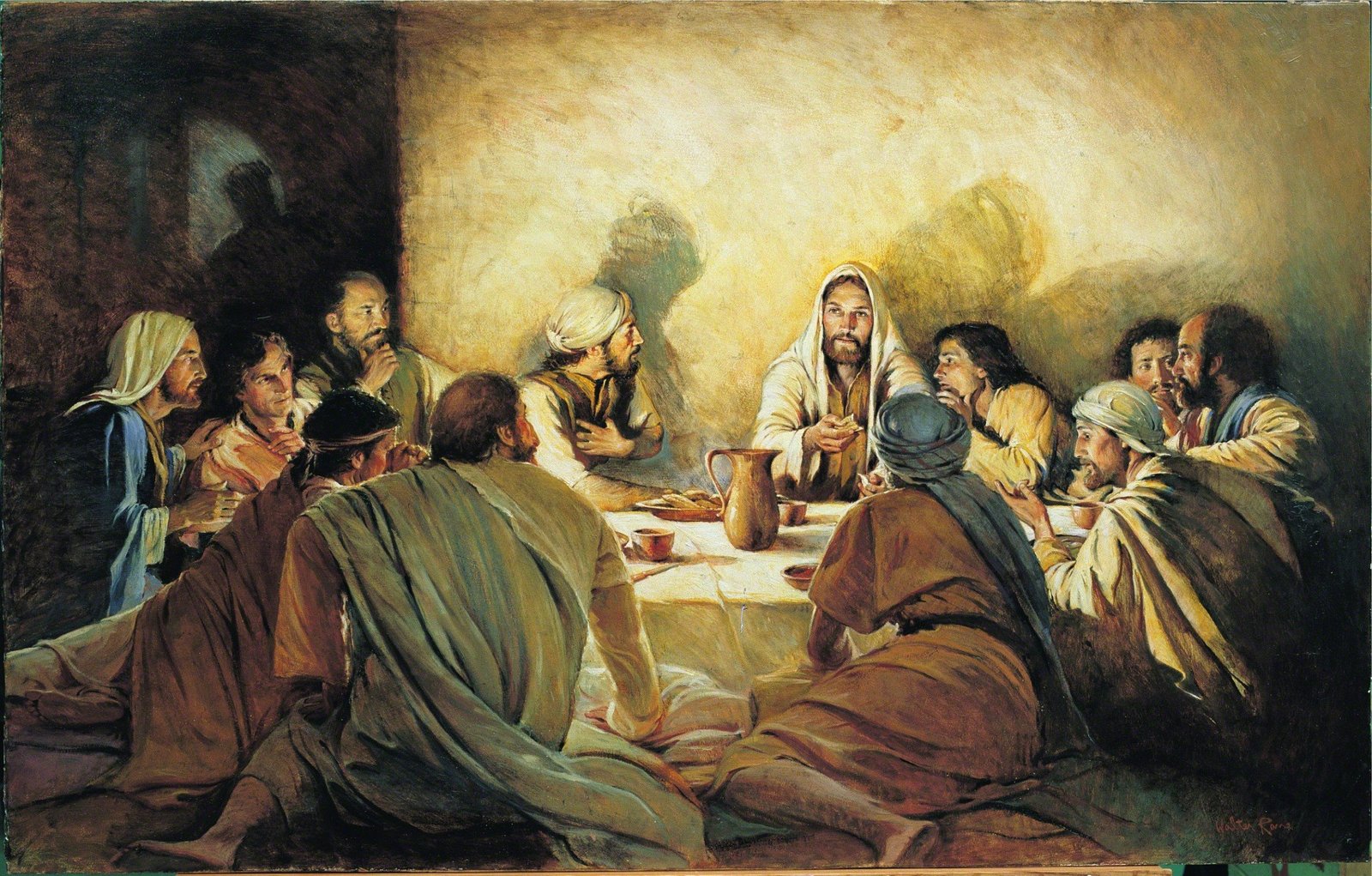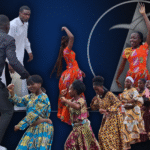
by f. Luis CASASUS, General Superior of the men’s branch of the Idente Missionaries Europe, April 18, 2021.
Acts of the Apostles 3: 13-15.17-19; First Letter of John 2: 1-5a; Saint Luke 24: 35-48.
A few days ago, I went to help in our parish in Madrid (Spain). When I was at the door, a man about 45 years old called me. He looked polite and dressed like any middle class person. He asked me if I was a priest of the parish and I introduced myself. He explained that he had lost his job, did not know what to do and had debts.
We discussed various possibilities for assistance (Caritas, Social Services, etc.) and…I do not think I could really help him with his problem. But, at the end, he said: Thank you for asking my name and for taking the time to speak with me.
When we are in difficulty, all human beings need some form of intimacy, a space where we can share our problems and doubts with someone. In today’s Gospel, Jesus chose to have something to eat with the frightened and confused disciples and so spent a relaxed and familiar time with them, before talking about their mission and how everything that happened was part of the divine plan. Then he opened their minds to understand the scriptures.
There is a reason that Jesus gave us a meal as a way to remember him. Meals can be the places where communities are born, where times can stand still, where we can be who we are in a comfortable setting. It is no wonder that Jesus made the center of our worship a table for eating. Our hope as Christians is that the life we share together at the kitchen table -all of our joys, fears, vulnerabilities, and excitements- will be what we bring to the altar of our Eucharistic table, sharing with Jesus and his gathered Church in a way that makes time stand still and forms memories that we will never forget.
Food connects people. Why else do you think so many people go to dinner on dates? Meals really do help establish closer relationships between people.
Something as small as asking what someone wants to dinner or deciding what to eat makes the bond between us stronger. By establishing a regular routine of eating together, families can really become closer. If you think about the regular actions that occur when eating as a group, such as passing around dishes, sharing food, etc., these are all actions that physically and mentally create relationships between people.
In a world where the most frequent and easiest thing is to become disunited, we are witnesses when we manage to remain together. In a world where we are overwhelmed by needs, shortages and fear, we are witnesses when we find the way to get close to our neighbor and dedicate some time to listen to him.
We may not be able to solve their problems. The only condition is to approach them in the name of Christ, in the manner of Christ, with no other motivation. May the next time we have coffee with someone, or are at lunch or dinner with our community, with our family, our intention is not to appease hunger, but to create a suitable climate so that those around us feel the presence of Christ, not simply our courtesy or kindness.
When we speak of the Spirit of the Gospel, of living according to the style of Christ, we cannot limit ourselves to the moral dimension. It is evident that any thought, desire or action that goes against our neighbor is contrary to the Spirit of the Gospel. But let us not forget that “ordinary” moments, such as any conversation, a greeting or a meal, must be full of intention, illuminated by the desire to be a witness to Christ. If we limit ourselves to avoiding offenses, or to being kind and helpful (which is indispensable), we can lose sight of the fact that every moment with other people is a challenge, a silent invitation to give proof of abnegation and service (not just one of the two).
When Jesus asked: Do you have here anything to eat? of course he knew the answer. It was a didactic way of saying to the disciples: You can do something for me…. now. If we want to be authentic apostles, we should take note of this pedagogical style of Christ. One of the modern manifestations of this immediate invitation to follow him is missionary volunteering, since it is open to people whose faith is not necessarily strong and also invites for an immediate response, prior to a systematic understanding of what the spiritual life is all about.
The scriptures this weekend are all about speak of recognizing the presence and action of divine persons in our lives. In the First Reading, we find Peter and John, by the power of Jesus’ name, they cured a man who had been crippled from birth. Naturally, his cure caused a big stir and Peter and John seized the moment to remind them that this man was cured not by them but by Jesus of Nazareth…the one they had put to death, calling out for him to be crucified.
If many of us have not had such a healing experience, we do share the most frequent and clear mystical experience: forgiveness. You and I have been forgiven many times, not only over the years, but today. This forgiveness manifests itself again and again in the fact that he sets before us a new mission, which is his ultimate expression of trust.
In this way, we are sent to announce the Good News, not as a singular event that occurred historically, but as our own personal experience of having been redeemed, of having been invited to bring our neighbor closer to God, in spite of our fear, our mediocrity and our betrayals.
This mercy provides us with lasting peace and joy. At the same time we too are sent out by the Lord to be his witnesses and to touch him by reaching out to our brothers and sisters, especially to the poor and needy, because God has taken upon himself the face of all the men and women of the world, and humanity has thereby become God’s presence amongst us.
In today Jesus’ words there is no reproach for the fear or unfaithfulness of the disciples, no severity, but rather the tenderness of the one who gives all kinds of signs so that we can believe with our weak faith. It is the same message of tenderness and forgiveness that the impetuous Peter gives to the people in the First Reading: Our errors, sins and mediocre attitudes are not only due to malice, but to ignorance and will never have the last word. In the end there will always be the proclamation of forgiveness and the possibility of recovery. The healing of the lame beggar, which took place immediately before today’s Acts text, was only a visible sign of this reality.
We are not always able to recognize the presence and action of Christ (or of the three divine persons) at our side. To a large extent, this is because we find it difficult to accept that human and divine persons have ways of seeing reality and of acting that are very different from our own.
I remember when I was in school that I was especially clumsy at artistic drawing. However, one of my classmates, who did not excel in other school subjects, had an incredible capacity and imagination for that matter. So, we came to an agreement: in each day’s homework, I would do the math problems and he would draw a picture for each of us. It was a perfect tandem. I have no doubt that our teacher, an unforgettable Marist Brother, was aware of our “cooperation,” but the truth is that we both progressed in our respective weaker areas and became even better friends.
For my part, it was hard for me to imagine how a person like Pablo – that was his name – could have a vision so different from mine, an ability to put on paper anything we could imagine: landscapes, pirates, animals, monsters…. My way of reasoning and learning was completely different.
Will we be able to admit that God’s logic is probably different from ours, that his plans of mercy and salvation for us may be unpredictable and difficult to imagine?
For the disciples of Emmaus and for those who were locked up for fear of the authorities, everything seemed obscure and unfathomable. Before explaining many other things to them, Jesus shows them the wounds in his hands and feet, that is, his gestures of love, so that they would understand the power and extent of our heavenly Father’s plan of salvation: if we seek to please him, to give him glory in the little things, he makes us stronger than anguish and death. That explains John’s recommendation in the Second Reading: The way we may be sure that we know him is to keep his commandments. God’s logic is not our logic, what seems to be folly and weakness, Christ dying on the cross, or our complete fidelity to the little things our complete fidelity to the little things (saying thank you, greeting, offering a glass of water) is actually paves the way for the wisdom and the providential power of God that which saves us.
Sometimes we assume it is we humans who are the ones doing the seeking. We regularly imagine that faith is a great game of hide-and-seek, with God playing very hard to get. But God is not hiding. God is seeking, speaking, pouring down life-giving grace like the rain and blanketing the earth in a love that suffers with all who know deep ache. Seek the Lord while he may be found, call upon him while he is near; let the wicked forsake their way, and the unrighteous their thoughts; let them return to the Lord, that he may have mercy on them (Is 55: 6-7).
Although some of the generous efforts we make say that we believe in the risen Christ, we all have moments and times in our lives when, like the disciples, we feel like life has lost its meaning. We get mired down in sadness and grief and forget the times we have seen and experienced the presence and forgiveness of the risen Christ. Typically, these are the moments that the Holy Spirit uses (not “produces”) to bring about our purification, not unlike thecontrarietythe first disciples experienced in threir lives. It si at those moments that we need to know and understand that the risen Christ is with us and that we have been and are loved by God more than we recognize.
And the more we recognize this presence, the more our sadness is transformed into joy and we are empowered to be his witnesses to other.











